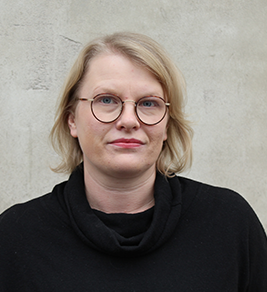In this project we investigate existing policies that deal with social sustainability in urban areas the Nordic countries – and investigate how social sustainability is defined and used in the different national contexts.
The project consists of 1) An overview of recent research on urban planning for social sustainability in the Nordic countries. This includes issues such as residential segregation, housing policies for social mixing and inclusion. What does recent research indicate about the social sustainability of the Nordic urban areas? 2) A comparative overview of national policies, programs or governmental investigations for social sustainability, including issues such as residential segregation, housing policies for social mixing and inclusion.
Social sustainability is a common buzz word in urban planning policy documents. But it is at the same time vague and unclear in what it actually means. As a concept it is open for interpretation and has perhaps functioned as the “black box” of the sustainability concept. Into that black box a lot of different aspects of sustainability are put, and it is hard to measure with precision. The different conceptualisations imply different understandings of what is the problem, and thereby also of what are the suitable measures to strengthen it. It is also, at least in the Swedish context, used both as a “tool” to solve social problems in existing urban areas, and as a “tool” to develop new attractive areas. Naturally then implying very different types of measures even though it is framed in the same concept.
However, at the same time it has the potential of being a central and important concept, and to, particularly in relation to urban and regional development, point to highly debated aspects of spatial development such as segregation, housing tenure forms, spatial justice, citizen participation etc.
In this project, the aim is to investigate what the different policies relevant for planning for social sustainability in the Nordic countries deal with more specifically. Segregation? Housing? Education? Employment? We investigate existing policies and how the concept is defined in the different national contexts. We ask for example:
– What are the existing explicit policies on social sustainability in the Nordic countries, on a national level? What is social sustainability made to mean in each national context? Is it explicitly or implicitly targeted?
– How can social sustainability – and thereby also unsustainability – be measured?
– What are the implications for urban planning practice regarding the “problem to be solved” – if it is segregation, unsafety, high turnover in housing areas etc?
– Are there different understandings of “the social” in the Nordic countries, and what might be the reasons and consequences of that? Are there different understandings of what planning can do in relation to it? Can the different definitions and measures point to interesting political differences and possibilities to learn from each other?
Related Staff
Related Publications
- City-region planning for everyday life
- Addressing social sustainability through everyday life: Experience from a pilot study in four Nordic city-regions
- Can planning combat segregation and strengthen social sustainability?
- Indicator frameworks: Helping planners monitor urban sustainability
- Integrated Models: Planning Urban Sustainability
- Nordregio News Issue 1 2014: Planning Tools for Urban Sustainability
- En granskning av Norges planeringssystem


